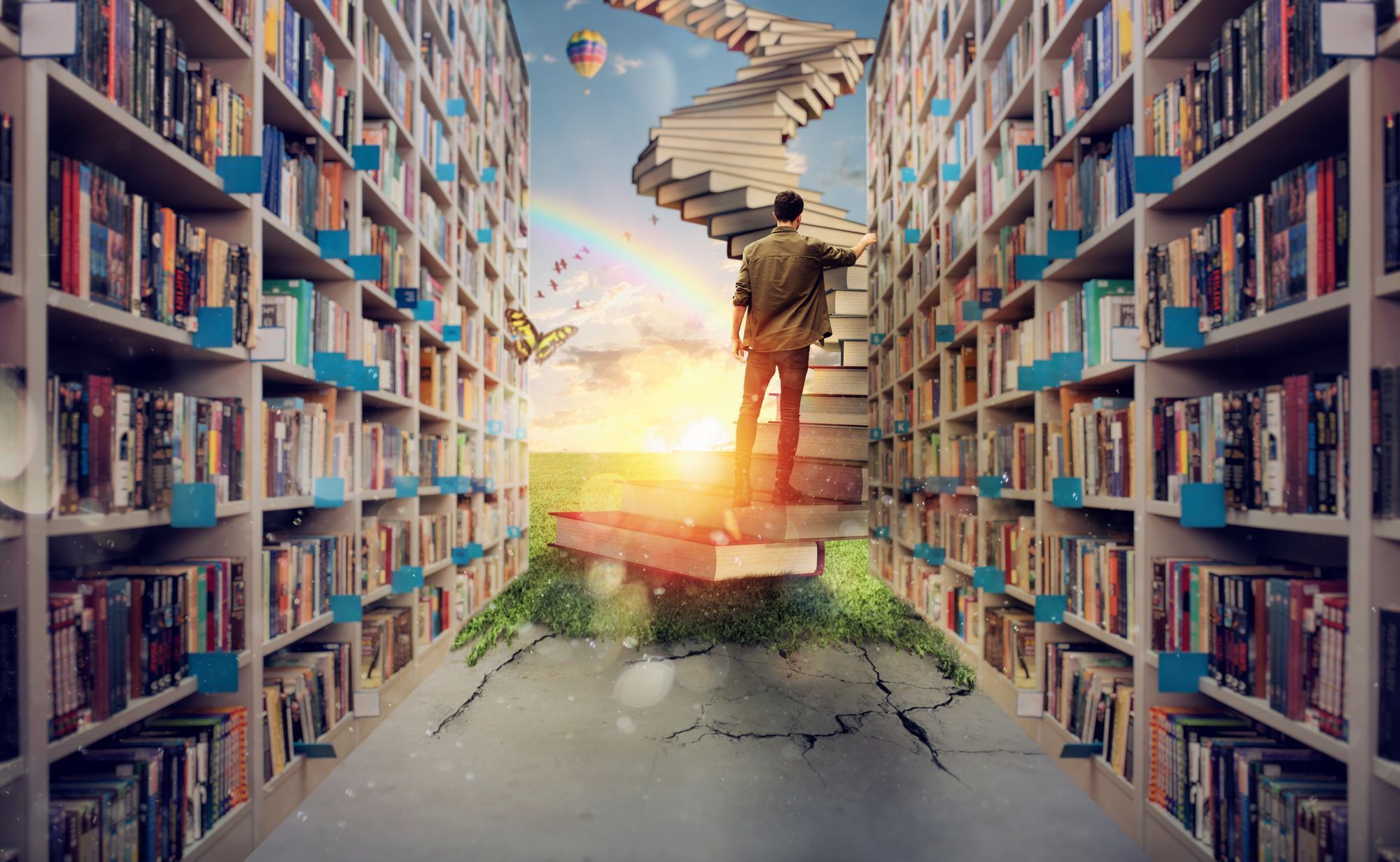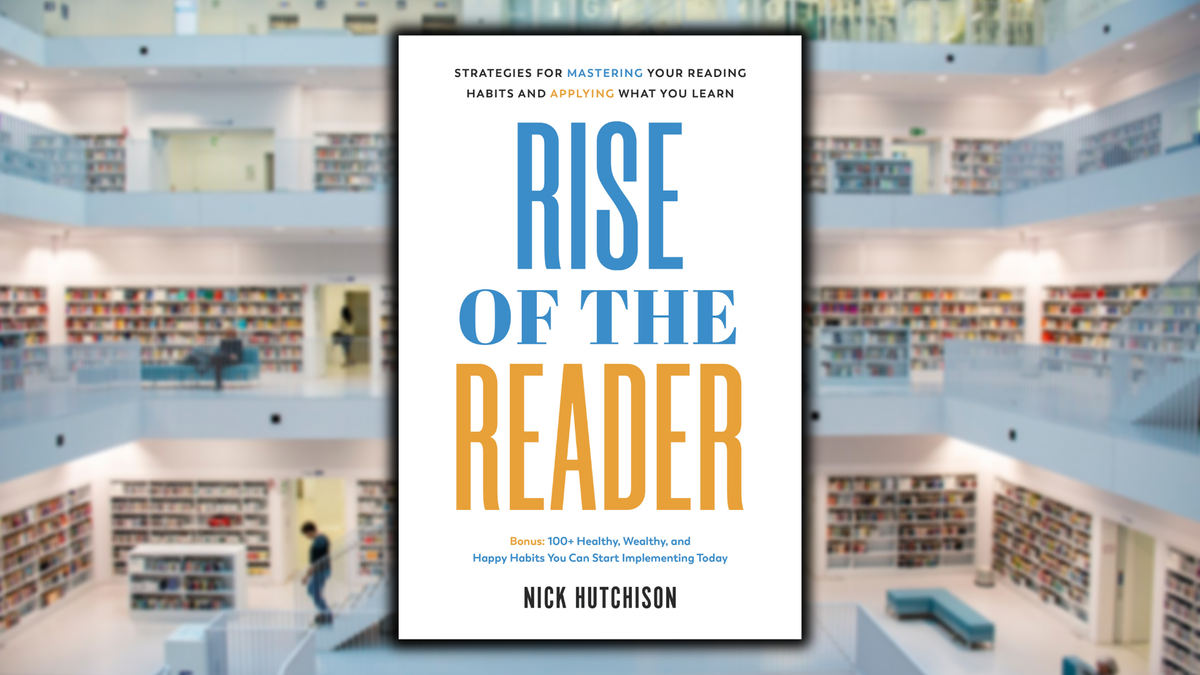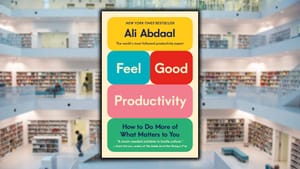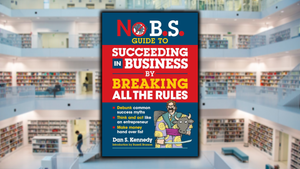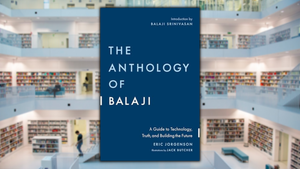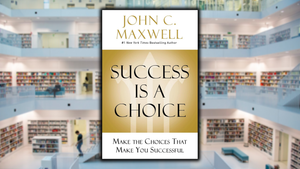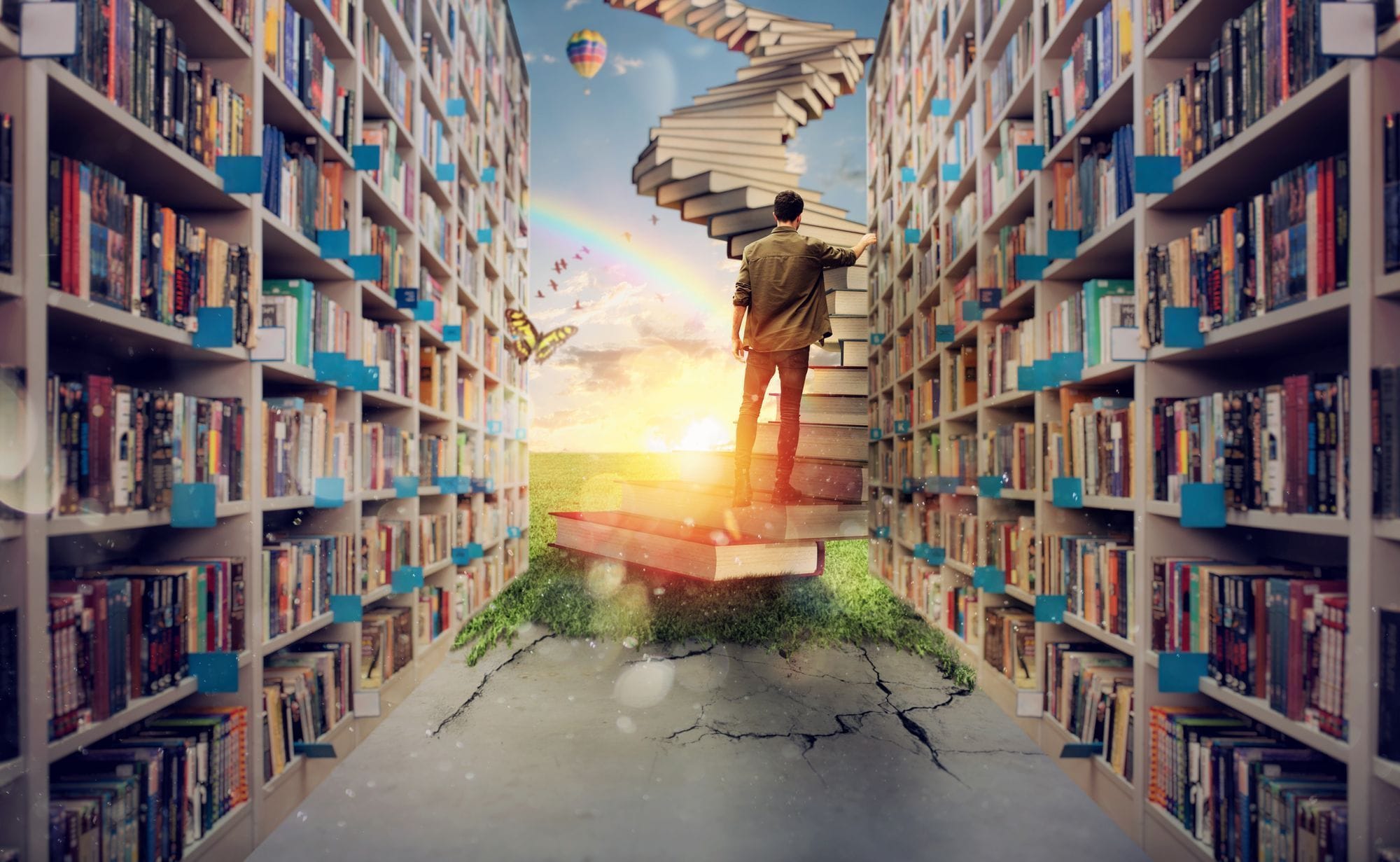
This Book is For:
*Beginner readers who want to learn how to build a strong reading habit, extract the most value from the books they decide to read, and find the best books to read in the first place, all while avoiding the common mistakes that prevent many people from profiting from humanity's collective wisdom.
*More experienced, life-long learners who may have already developed a reading system of their own, yet who want to take it to that next level, and be reminded of all the life-affirming reasons why they're so powerfully drawn to reading in the first place.
*Career professionals who are looking for a competitive advantage, an edge over the other players in the field, and who know - at least on some level - that books contain the mindsets, strategies, and tactics they've been looking for this whole time.
*Anyone who may have fallen out of love with reading (perhaps because of a stifling education system that too often takes all the fun out of it), but who feels that it might be important to reestablish that long-lost connection with the wealth of worldly wisdom from humanity's most brilliant minds.
Summary:
“I was missing out on the world’s best kept secrets by choosing not to read.”
-Nick Hutchison, Rise of the Reader
It's said that the person who doesn't read books has no advantage over the person who can't read them, and this one's absolutely true.
Almost every single person you look up to, who have led great lives, accomplished magnificent things, and have elevated themselves above their initial circumstances have credited large parts of their success to a habit of lifelong, dedicated reading and a love of the profound ideas found in great books.
You almost literally can't read a biography, memoir, or even an article about someone influential and impressive in some way without hearing about how their parents read to them when they were younger, their teachers inspired a strong love of reading early on, or about how they were lucky enough to stumble upon that one book that "started it all." All three of those things happened to me too.
What I'm saying is that it can't all be a coincidence. There must be something in books, something you can't find anywhere else (at least not delivered in the same way) that propels these powerfully influential people forward in life.
The author of Rise of the Reader, Nick Hutchison, feels the same way, and he's written a wonderful book that captures the magic of what it's like to have the idea hit you that, by holding a book, you're holding decades of wisdom and experience in the palm of your hand.
Every page crackles with Nick's breathless enthusiasm for reading, and his story makes it clear that books and reading are for everyone.
You don't have to be intimidated by the "Great Books," or swayed by the "100 Books You Must Read to Be Considered Well-Read" lists or anything like that, and even though there are more Starbucks than libraries, everyone is welcome in the book stacks too. Books are another kind of "Third Place" where everyone is welcome, everyone is equal, and everyone can return to for as long as they want to feel inspired to keep moving forward in life.
You might be new to reading, you might be a somewhat more "advanced" reader, or you might be anywhere in between, but I've read more than 1,200+ books in the last ten years, and I still found a ton of value in Rise of the Reader.
The first part of the book is all about discovering (or rediscovering) what books can really do, optimizing your reading, and building on basic learning and implementation strategies that will help you move the knowledge and wisdom from the page, all the way into your actual life.
Now, remember that this book deals primarily with nonfiction. I don't believe you have to "apply" everything you read - reading for pure pleasure is actually a thing too! So don't listen to anyone who keeps badgering you about whether you're "applying" everything you're reading. "But have you applied what you've read? What about implementation? Are you applying these ideas or just reading?"
You have my permission to just read. Not that you need it, but you have it.
That being said, one of the strongest parts of the book is Nick's suggestion that we have an intention behind our nonfiction reading, an idea I wholeheartedly support.
If you're reading for a result, to solve some problem you have in your life, or to achieve some goal, then yeah! You do have to apply what you're reading. It's not just going to "happen" for you because you read a Tony Robbins book. Luckily, Rise of the Reader is full of implementation strategies that are extremely effective and worth learning about.
This book could have been 10 times as long if Nick had gone more in-depth on all the topics he discusses - the compound effect, note-taking, SMART goals, NLP (neuro-linguistic programming), and on and on - but that was never his intention. It's not meant to be a "complete guide" to any of these things. Instead, he's making you aware of all the avenues open to you for self-improvement and lifestyle optimization, and for that purpose, Rise of the Reader serves beautifully.
The last half of the book is all about health, wealth, and happiness habits, and he lists more than 100 new habits to improve each, along with his personal experience with them all, further reading, options to explore, etc. You could read 100 books, one for each habit, but he lays out all these habits in one place, which is nice. You're going to want to keep this book on your shelf within easy reach whenever you want to install a new beneficial, life-enhancing habit.
I won't oversell the book. It's very good, and I thoroughly enjoyed it, but the real selling point is Nick's sheer enthusiasm for the reading life, and as he explains in the book, we all need to surround ourselves with people who are dedicated to growth, learning, self-expansion, and fulfillment.
Basically, he's one of us: he's a reader, a passionate developer of human potential, and this book can serve as excellent encouragement for you build and maintain your intention to become a rising reader yourself.

Key Ideas:
#1: Ten Years, in Ten Hours, for Ten Dollars
“The best investment you can make is in yourself. The most cost-effective investment in yourself is not a formal education, a week-long retreat, or an online course…it’s a book. Why?
Books only cost $20 and take just a few hours to consume, yet they hold the same power to change your life as any of those other resources. The potential return on investment (ROI) is insane!”
Books are virtually the only way you can download ten years of someone else's experience and wisdom into your brain, in ten hours, for less than ten dollars. Where else are you going to get that kind of ROI?!
Will Smith put it best when he said that no matter what problem you're facing in your life, there is someone else out there who has faced that exact same problem, solved it, or at least made major discoveries that could help you deal with it, and has written most of what they know down in a book...
That you can get pretty much for free!!!
Later on in this breakdown we'll speak about something called "the adjacent possible," but for right now, the concept of leverage is where we'll place our focus. Leverage, in basic terms, is the mechanism by which we can "accomplish much with very little."
If we invest $10,000 into a rental property that earns us $100,000 in returns over the next five years, we are leveraging that $10,000 to create an even bigger result in the future. Or if we spend one hour organizing our files and that saves us ten hours of searching for what we need later, we can say that organizing our files first was a highly leveraged activity.
Reading is also high-leverage. We can invest ten dollars and ten hours learning from a great book, and download a lifetime of someone else's knowledge and wisdom, mainlining it directly into our brains.
Contrast that with low-leverage activities like watching trash TV or hanging out with people who do nothing except whine and complain about their circumstances. You're not benefitting very much from that activity, even though you may genuinely like those people on a personal level.
Even things that used to be good uses of our time and money have turned into lower-leverage activities in recent years: things like traditional education such as is offered by universities (that don't really prepare students for the realities of the working world, or even give them the skills to land a job in the first place), a paid mastermind event (which can be quite impactful, as long as we don't simply return to our previous behaviors immediately after the session is over), and even online courses. Books remain undefeated.
Meeting and learning from the author themselves might be transformative in its own way, but that's usually not possible, for obvious reasons. The next best thing is to read their book, and even if you do end up meeting them someday...it's best if you've read their book!
It all comes back to leverage. Even spending a whole day with the author probably wouldn't teach you the same amount as reading their book. You'd learn different things, surely, but there's really no substitute for books.
With books, you have all their best ideas, highly polished, thoroughly vetted, tested in the laboratory of real life, all in one place. The ROI on that is truly insane, and it keeps paying off, over and over again, for the rest of your life.
#2: Buy Your Ticket, Take the Ride
“Knowing these books can change your life and choosing not implement what you're learning is like knowing you're guaranteed to win the lottery but choosing not to buy a ticket."
Are you more likely to win the lottery or have your life changed by a book? Serious question. You probably already realize that the best books contain the collected wisdom of the smartest, kindest, most successful and amazing human beings who have ever been alive on this planet.
But there are also a lot of bad books out there...and I do mean a lot. What are your chances of picking up a good one?
Well, it's estimated that there were more than 158,000,000 published books in existence by 2023, with 2.2 million new titles added to our global bookshelf each year.
Full Disclosure: I don't love mathematics. So I'm just going to stick with round, easy numbers on this one. But when you consider the astronomical odds against you ever winning the lottery, I'm gonna have to go with books on this one! Especially since there are probably at least 100,000 books out there that are worth reading, maybe even more.
That's just an educated guess, and of course it all depends on which kinds of books you like to read. But your odds of having your life changed by a great book is significantly better than having your life changed by the lottery. You just have to buy a ticket! Or, get your hands on a book, as it were.
Sure, you may have to kiss a few frogs before you find a book that absolutely blows you away, but you're much more likely to stumble upon a life-changing book than you are to stumble into life-changing money by winning the lottery. Books beat lottery tickets as an "investment" every time, and it's not even close.
What's more, by reading widely and constantly, you're stacking the probabilities in your favor. You're making it much more likely to find yourself reading a fantastic book, and you won't have to visit millions of bookstores to do it either. You can just visit the library, or download any number of book apps to your phone, or have books delivered straight to your door from Amazon.
The bottom line is that you could spend $1,000 on lottery tickets and very easily end up with $0, but, if you follow the advice in this book, you're extremely unlikely to spend $1,000 on books and end up with nothing.
To Nick's point in the quote above, nothing you end up learning in a great book is going to do you any good if it never makes it into your actual life. If learning is defined as behavior change based on new information, can you even be said to have learned anything if you don't do anything differently?
#3: The Power of Intention
“Reviewing your intention every time you begin reading will keep your mind attuned to the information most relevant to your desired outcome, empowering you to take practical steps toward achieving your goal.”
Ironically, setting a reading intention is something I only started doing unconsciously, but it's something that Nick Hutchison does extraordinarily well.
In the front of each book he starts, Nick writes an intention, a purpose for his reading that will direct his thoughts and guide him to pick up the information he's looking for and see how to apply it to his life and work. This is a practice worth adopting by all of us.
Most of us aren't in school anymore. No one is telling us what to read and why; our reading lives are completely up to us, and our reasons are our own. We can choose what to read based on our unique situation, preferences, and ambitions, and setting a reading intention serves to clarify all this and give us a focal point.
I should also say here that there's nothing "wrong" with reading for fun. Reading is fun, or at least it can be most of the time, and if your "intention" is just to enjoy a good story, you probably don't need to write that in the front of a book. But if we're talking about non-fiction (and some fiction, sure), then we want a result, and setting an intention helps us achieve that result.
It helps you identify what you will do with this information you're absorbing, this knowledge and wisdom you're exposing yourself to. Coordinated, massive action is truly the secret to most of the success we all seek. It's also most often the answer to all our problems, as summed up in the words of Nikos Kazantzakis: "Action, action! No other salvation exists!"
In a very real sense, we see what we're looking for, and there's a specific network of nerve pathways in the brain called the reticular activation system that's responsible for this. Its job is to filter out irrelevant information, and it's performing this function for you every moment of every day, as your brain works full-time, seeking out information that's going to lead you to the accomplishment of your survival goals and ignoring everything else.
This also goes a long way toward explaining why re-reading is so important. If you've ever returned to a book you've read years ago and found that it was completely different, you might instead consider that the book is exactly the same, but it's you who have changed. You're a completely different person since you first read it, with a multitude of various new life experiences, and maybe even totally different goals. It's almost like a stranger read that book all those years ago!
Because you have new goals, re-reading will allow your reticular activating system to pick up on information from that book that simply wasn't relevant before. It was always there, but because it didn't apply to you, you don't remember reading it.
Returning to that book with your renewed intention, you turn the laser focus of your RAS onto the accomplishment of your new goals, and you consciously seek out information from the book that's going to help you get there. Your next, practical step will be informed by your reading, and as long as you have an intention, every step you take will be in the right direction.
#4: Finding the Time to Read
"If your reason to read (your intention) is big enough, you will find the time to read."
Achieving almost literally any result you want in life is actually very simple. There are really only three things you need: some extremely attractive benefit that you're moving toward, some extremely unattractive danger or loss that you're moving away from...and impulse control. That's basically it.
When it comes to finding time to read, what it comes down to is ramping up the attractiveness of what reading will give you (and repeatedly making yourself consciously aware of it), blowing up the pain (real or imagined) of not reading, and blocking out every single other thing that could possibly prevent you from reaching your desired goal of sitting down with a book and reading it.
When you consciously, repeatedly bring to mind all the benefits that reading more books more often will bring to your life, and you make yourself painfully aware of what not reading is costing you, then suddenly, reading becomes a whole lot more important. You won't even really have to discipline yourself much to do it, because you'll know, on a deep, visceral level how important it is.
Your intention will drive the habit, and your habit will bring all these benefits to life for you, and you'll naturally begin finding more and more time to read, as you keep seeing all the wonderful changes that are happening in your life because of it.
So having an intention is important for reading for several reasons: learning more effectively, and amplifying its importance for you. But what I've also found helpful is to schedule the things that are most important to me first, and then schedule everything else in my life around them. For me, I directly apply this to reading. My reading time gets a primary place in my schedule before everything else gets filled in around the edges.
Everyone has time to read, but not everyone has the same priorities. At the end of the day, you just have to be completely honest with yourself about where your priorities actually are. And if reading's not your priority right now, that's fine! It's honesty and clarity that are key here.
What's more, it doesn't actually take that long to read a 250-page book anyway. For simplicity's sake, we'll say that you want to read a book a week. Which is tremendous goal that not many people even get close to! So how possible is it?
If we decide 250 pages by 7 days, we find that we'll have to read an average of just 36 pages a day to reach our goal. That may sound like a lot, but when we simplify and say that the average page in a book contains 250 words and the average reading speed is 250 words per minute (the number of words per page is thought to be between 233-280, and reading speed between 200-250 words per minute, but for my sake - and yours - we're keeping the math super simple), then it will take you just 36 minutes of reading per day to finish 36 pages.
Of course, it will likely take you more, when you factor in coffee breaks, note-taking, inevitable distractions, etc. But it's not going to take you four hours.
Reading doesn't have to take over your life, but if the accomplishment of your biggest goals and aspirations require just 36 minutes per day of reading to give you the tools and ideas to make them happen, wouldn't you be able to find the time?
#5: The Adjacent Possible
“At any given moment, we have an infinite number of choices in front of us, which means there are infinite future versions of ourselves out there. Some decisions will get us closer to happiness and fulfillment, whereas others won't. The beautiful (and scary) thing is that we are in control of those choices."
This is one of the most exciting, possibility-laden concepts that I've ever discovered in my entire life, and that is not an exaggeration in the slightest.
Very briefly, if you think of where you are in your life right now as being inside one giant room, you can think of every choice you have available to you in this moment as a door leading you into a different room where you'll find yourself in a new moment, faced with completely different choices than you have currently.
Move through the "door" of sending that job application, and you may find that you end up in a different room, where you now face the choice of accepting a particular job offer, or holding out for something better. Move through the door of speaking to that attractive stranger, and you may later face the choice of whether or not to agree to a second date with that person.
The examples I could give are virtually endless, but you needed to send the application to receive the job offer, and you needed to ask that person out to get that first date.
But the really exciting part in all of this is that you can never, ever predict the kinds of choices that will stand before you in the future if you never exit that first room in the first place. Hell, even staying in that room is a choice!
In the example of the job offer, if you do accept, maybe you'll end up working for that company for three years, after which they'll offer you the chance to head up an international division in, say, Cambodia. How did you end up in Cambodia?!
But it doesn't even stop there...
Once you find yourself in Cambodia, maybe you're faced with the choice of taking one apartment as opposed to another. You choose one, for whatever reason. There's a fire, and you're faced with the choice of re-entering the burning building and trying to save one of the other tenants who's trapped inside. You save them. You end up becoming close friends, start hanging out, and they introduce you to their favorite sport, soccer. You've never played before, but you end up becoming really good at it and decide to start coaching an amateur team in your spare time.
Okay, I'll stop now.
But you see the wild set of unfolding choices that guided you from where you were initially - in that first "room" - all the way to coaching a soccer team in Cambodia! Admittedly, that's kind of a random example, but that's exactly the point. There's no way you could have predicted that your life would end up that way.
The really wild part? This is your exact situation right now, in literally every single moment of your life.
You can't escape it, you can't opt out, you can't avoid choosing - you can only move forward through time, and by making one choice, you are cutting off virtually every single other choice that you could possibly make about your future, who you will become, and what your one and only life will look like.
There are possible future versions of you that will never exist (and that's probably a good thing!), but there are also possible future versions of you that must exist: versions of you where you are living at max capacity, showing up in the world as your highest self, making the grandest possible contribution to the world with the skills, abilities, and resources you have available to you.
Well guess what? Each new book you read is a door too. Every new idea you encounter is like opening a door and revealing an entirely new room, full of possibilities and potential.
To unlock these new futures, however, you have to become a Rising Reader. You have to be in motion. In a silly phrase that I actually love, "doors of opportunity will open for you, but you have to be moving down the hallway."
#6: The Great Irony of Gaining an Education
"The more you focus on 'boring' educational stuff, the more 'entertaining' your life becomes. The opposite is unfortunately true as well. The more you focus on 'entertaining' stuff, the more 'boring' your life becomes."
Easy choices, hard life. Hard choices, easy life. That's the choice.
What we're going to discuss here also ties into the idea of the adjacent possible explained above. We're always opening or closing doors - possible futures, versions of ourselves, etc. - and the same is true whenever we choose "entertainment" over education.
Educating yourself with a fantastic book is going to open up all these options that you never would have had if you had opted for watching a Netflix series instead. Nothing against Netflix (I have a membership!), but if that's all you do, then eventually your life is going to get much more boring, as you'll find yourself with nothing to talk about besides the latest episode of whatever drama you're filling your mind with, and you'll forfeit the time you could have spent chasing down opportunities for building an actually exciting life in the real world.
More to the point, getting drunk every weekend is "entertaining" for some people, but if that's all you do, eventually your friends are going to start gaining promotions, going on trips, starting families, etc., and your life will start to get much more boring, as you limit your own choices and alienate yourself from the opportunities you would have had to improve your life in ways that didn't involve drunk tanks and pounding headaches.
Eventually, you'll be too broke and out of shape to have the energy or free time to do anything except work to make enough money for your next weekend at the bar to forget all the pain and frustration of having to work torturous hours to pay for your next bar tab. If that sounds extreme, that's actually how some people live, and I can't imagine it's very fulfilling. They'll get no judgement from me (I don't think that anyone is "better" than them or anything), but would I want to trade places with them?
The alternative is to get an education. Read books. Listen to audiobooks. Watch podcasts and educational YouTube videos. Spend time with people who have exciting visions for their future, absorb their ideas, add your own, learn from them, teach them what you know, and start building a more genuinely entertaining life full of self-discovery, self-expansion, and self-love.
#7: The Sixth Millionaire
"If you’re spending time with five millionaires, you’ll be the sixth millionaire.”
There are literally thousands of new millionaires being created every day, and there's no reason why you can't eventually become one of them if that's your deepest, strongest, most unwavering intention.
There are people out there who are way dumber and lazier than you or I, and yet they're still raking in the cash while people with all the advantages on paper are just struggling to get by. So what makes the difference?
Well, a lot of things, and I won't sit here and try to tell you that luck doesn't play a huge part in all of this. I am a passionate proponent of personal responsibility and agency, and yet even I realize that bad things happen to good people, and those good people don't always get what they deserve. However...
Every one of us can stack the probabilities significantly in our favor by making a conscious, determined commitment to surround ourselves with people who are headed in that direction.
The cultural gravity that exists around us can serve to bring our hopes and aspirations crashing back down to earth, or it can elevate us to levels of achievement and uncommon success far beyond our current imagination.
It's literally impossible not to be profoundly influenced and impacted by your environment, and this is true whether you're aware of it or not.
There's just something powerfully transformative about a group of hard-charging, high-achieving people, all gathered together (in person or online), working flat-out to make their inner visions real in the external world, and just by being around those people you'll be inspired to push harder and achieve more than you ever thought possible. It's true, because I have lived this reality, both through the books I've read, and the real, living people I surround myself with each and every day. It works.
It all matters, and it's all available to you! As long as you have an internet connection, a library card, and an earnest desire to be a productive, valuable member of your chosen high-powered group, avenues are available to you for breaking out of your current cultural gravity and taking everything you've ever wanted in this life.
That might mean earning more money or receiving some prestigious award, but it doesn't have to. For literally any and every worthwhile pursuit in this life, there's a strong, warm, cohesive group of individuals sharing ideas about their common love and ideals, helping each other succeed and get better...and you're welcome to join them.
It's all about making the group better and stronger. If you show up with enthusiasm, an honest desire to help and to be of service, and a willingness to learn, you will be welcome wherever you go. There's just this one very important thing to keep in mind, and for this I'll give the last word to Nick:
“Since you are the average of the five people you spend the most time with, if their lives are improving, so is yours. Be the one who drives that average sky-high."

Book Notes:
“At the checkout, I signed up for a store membership card. I knew that to really shift my identity from a non-reader to a reader, I had to commit. Carrying the membership card around in my wallet seemed like something a reader would do.
Plus, I got a good discount for signing up, which made me feel better. By simply buying a few books, I could already feel my potential starting to grow. It was as if instantly, a switch had been flipped, and I was now on a very different path in life.”
“Imagine you woke up tomorrow and everything you never expressed gratitude for disappeared. Start now!”
“Could I consume billions of dollars of lessons by purchasing a $20 book? For sure.”
"I read the three- or four-star reviews, because they contain constructive criticism and are usually written with logic instead of emotion. Outside of web-based research, I also like asking my reading friends about different books or authors they've read. If I know someone has similar tastes and interests to mine, chances are pretty good that their feedback will go a long way in my decision-making."
“Don’t underestimate how much you can learn from yourself.”
“When people tell me I am reading too much, I like to tell them I only read for an hour or two a day, whereas I spend every other waking moment implementing what I have read. Although I am not literally focused on implementing what I have read for 15 hours a day, it does feel like it sometimes, and that is not a bad thing."
“There is the version of you tomorrow who will judge your actions from today, but there is also the version of you 20 years from now who will judge all your actions from this day forward."
“I would rather feel 60 when I am 80 than 80 when I am 60.”
“With my extra time, I was able to start servicing my future self. I call this working ON your life instead of working IN your life.”
“So, what is the ideal balance between tending to your current self and your future self? Totally up to you. For me, it is probably 80/20 - that magic ratio again. I spend 80% of my time on highly leveraged present-moment experiences, and 20% on being kind to my future self. The best part is that most of my highly leveraged present-moment experiences are also feeding my future self."
"As they say, suffer the pain of discipline or suffer the pain of regret. The part they forget to mention is that the pain of discipline is temporary, and the pain of regret lasts forever."
“You have a choice to view everything in life the way that benefits you the most."
“Success comes down to choosing the hard right over the easy wrong. Consistently.”
"The shorter your sleep, the shorter your life. The leading causes of disease and death in developed nations - diseases that are crippling health-care systems, such as heart disease, obesity, dementia, diabetes, and cancer - all have recognize causal links to a lack of sleep."
-Matthew Walker
"Absorb what is useful, discard what is useless, and add what is specifically your own."
-Bruce Lee
"If you have an apple and I have an apple and we exchange these apples then you and I will still each have one apple. But if you have an idea and I have an idea and we exchange these ideas, then each of us will have two ideas."
-George Bernard Shaw
"Memory is the cornerstone of our existence. It determines the quality of our decisions and, therefore, our entire life."
-Kevin Horsley
“You become the average of your social media feed.”
"It's not the happy people who are grateful; it's the grateful people who are happy."
-Gaur: Gopal Das
“Everything is created twice, first in the mind and then in reality.”
-Robin Sharma
"Travel offers a great perspective on your normal day-to-day life, highlighting what you don't look forward to going back to, and giving you a great opportunity to correct.
Sometimes, you just need to step away from the hustle and bustle long enough to see that you're not as happy as you want to be. Plus, traveling opens your eyes to how the rest of the world lives."
“Even if you don’t think you're being impacted by the negativity, remember, your subconscious is always on and consuming information."
"If something bothers you daily, it will bother you over 10,000 times over the next 30 years. Why tolerate that?"
“For the rest of my life, I am choosing never to shut someone out or refuse to converse with them because they have a different opinion than me."

Important Insights from Related Books:
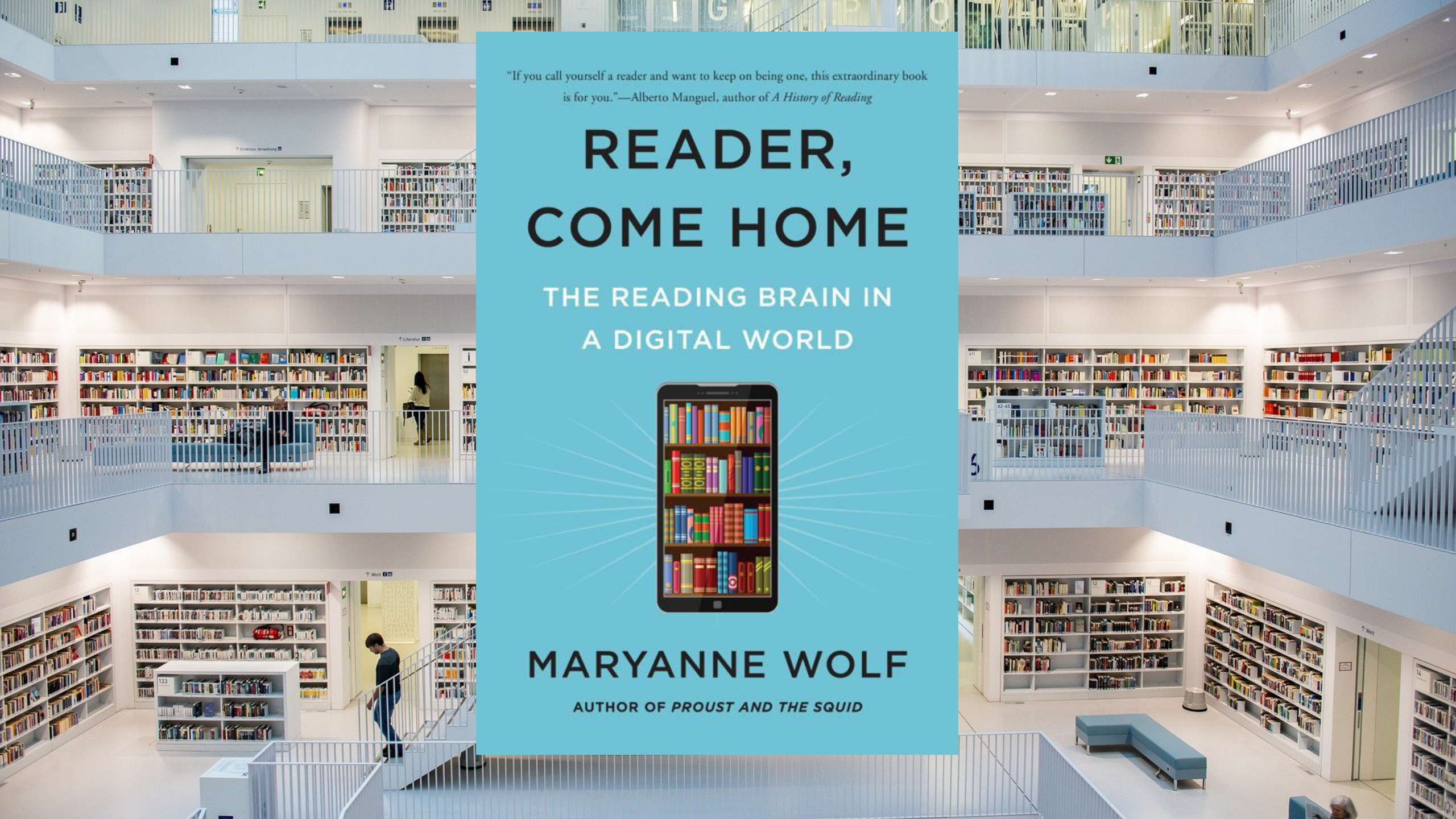
Reader Come Home, by Maryanne Wolf:
Humans were never meant to read. No child is ever born with a gene that directly leads to literacy; the reading circuit has to be intentionally, and rigorously cultivated, especially in the early years, and nothing about that process is guaranteed.
The ability to read these words is nothing short of a miracle, and you're witnessing it right now in this very moment.
The human brain - this amazingly, vastly complex thing, this technology that you carry around in your head all day - somehow finds a way to connect the functions that already exist, like vision, language, pattern recognition, and more, and combines them in such a way that you're able to follow this sentence and decode its meaning.
In this book, Reader, Come Home, neuroscientist Maryanne Wolf traces the development - or lack thereof - of the reading circuit and extends her research into questions of what will happen to us as we shift from a literacy-based culture to a more digital one.
The demands of the digital world engage our brains differently, and it's become clear to researchers like Dr. Wolf that the medium(s) in which we read shape how we read, and encourage or discourage the expert analytical and reading skills that are desperately needed today - by everyone.
Sample Quotes from the Book:
“The Bureau of Prisons in states across America know this well; many of them project the number of prison beds they will need in the future based on third- or fourth-grade reading statistics.”
“For more than four decades, one of the single most important predictors of later reading achievement has been how much parents read to their child.”
“Open a book and a voice speaks.”
Read the Full Breakdown: Reader, Come Home, by Maryanne Wolf
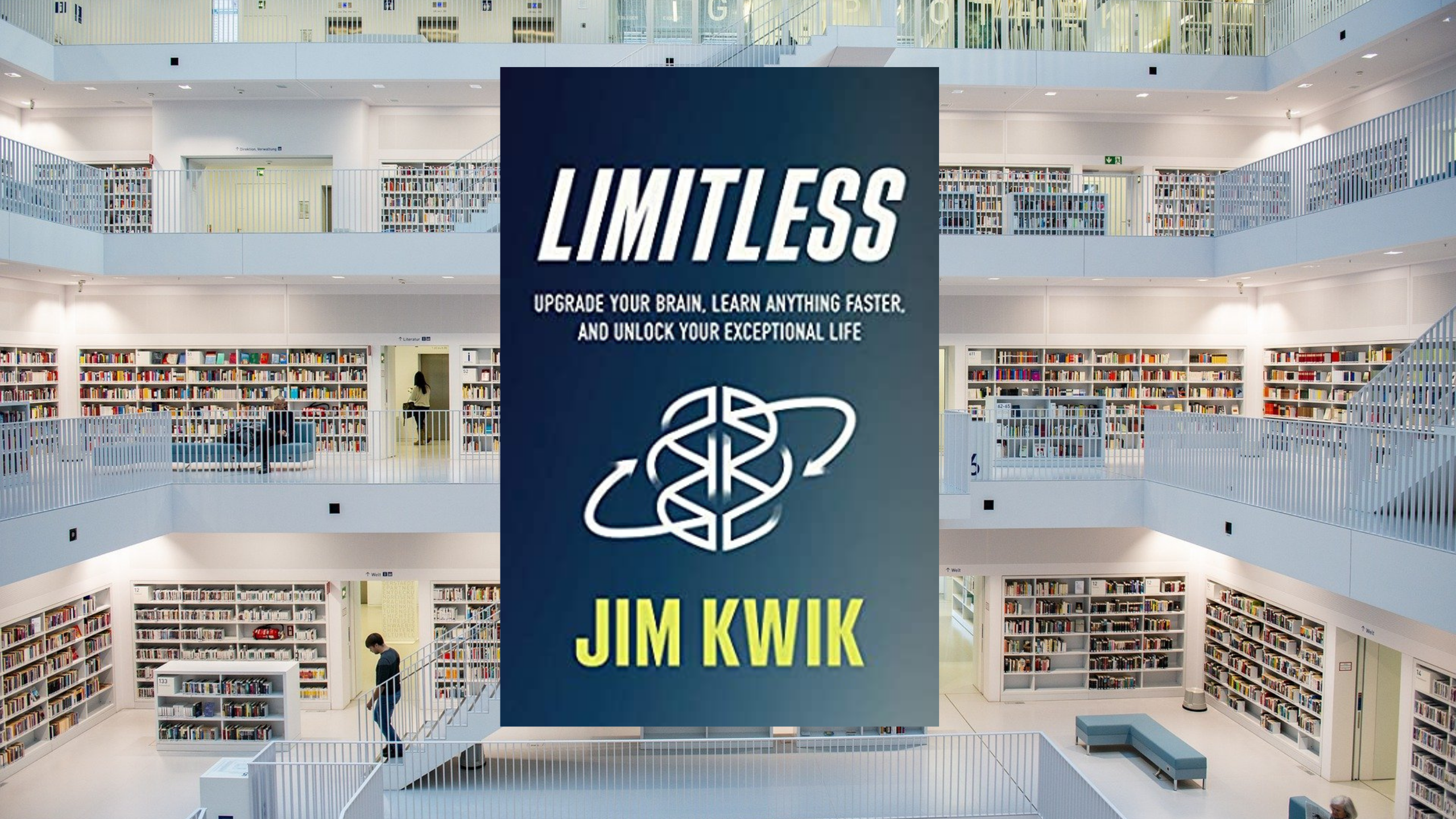
Limitless, by Jim Kwik:
Jim Kwik is a rockstar in the self-improvement genre - the dude has tons of enthusiastic endorsements on his website by all these wildly smart and successful people - and he’s got a 25-year track record of teaching at every big company you’ve ever heard of, not to mention his podcast which has been downloaded tens of millions of times. The guy knows a thing or two about a thing or two, clearly.
One of the key ideas to understand here in this book is that your brain mediates your entire experience of reality! Everything you’ve ever seen, thought about, imagined, felt, or anything was experienced in the brain - and you only have one! Keeping your brain healthy and strong will let you do literally everything else.
Here, right at the top of your shoulders is where you need to focus all of your attention. A powerful brain will make everything else possible for you, and Limitless will show you how.
Sample Quotes from the Book:
“Most everyone limits and shrinks their dreams to fit their current reality.”
“When you teach something, you get to learn it twice.”
“Often our greatest struggles lead to our greatest strengths. My two biggest challenges as a child were learning and public speaking. Life has a sense of humor because I spend most of my life public speaking on learning.
I couldn't read, and now I teach people from all over the world how to read better. I struggled to understand my brain, and now I speak in front of audiences of thousands to help them understand the amazing tool they possess."
Read the Full Breakdown: Limitless, by Jim Kwik
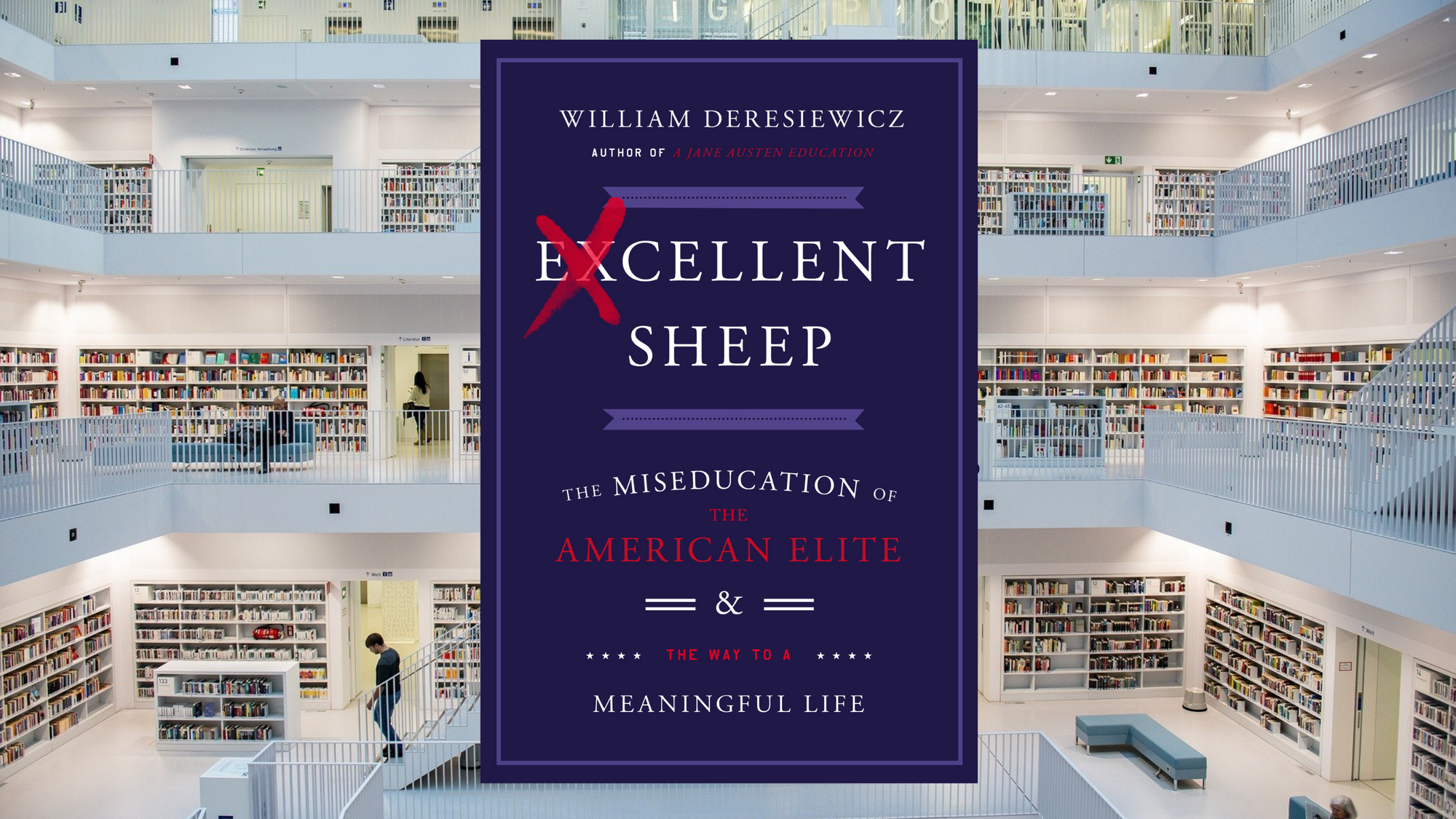
Excellent Sheep, by William Deresiewicz:
If you left university with just a degree and a pile of debt, you were robbed. Somewhere along the way, colleges and universities drifted away from being centers of higher learning and loci of self-discovery, into being commercialized profit centers, and students themselves became "customers," or, worst of all, commodities.
William Deresiewicz is a former Yale professor with a deep, infectious passion for higher education, which is self-evident throughout Excellent Sheep and which leaps from every paragraph. He cares; he cares so much, and his distress at the decline of educational standards in the United States and elsewhere is shared by myself and a multitude of other educators who know what school can really do.
Universities today often force students to choose between learning and success; the straight path to riches and prestige is prized above real education, real introspection, real meaning, and the creation of one's own real life.
In this book, Deresiewicz discusses things like the mounting stress and feelings of unworthiness faced by today's students, the history of institutions like Harvard and Yale and how their admissions standards have shifted over time, the real "return in investment" of college, the meaning of leadership, what to look for in a university, and so much more.
Sample Quotes from the Book:
“What’s the return on investment on college? What’s the return on investment of having children, spending time with friends, listening to music, reading a book? The things that are most worth doing are worth doing for their own sake.”
“The purpose of college, to put all this another way, is to turn adolescents into adults. You needn’t go to school for that, but if you’re going to be there anyway, then that’s the most important thing to get accomplished. That is the true education: accept no substitutes.
The idea that we should take the first four years of young adulthood and devote them to career preparation alone, neglecting every other part of life, is nothing short of an obscenity.
If that’s what people had you do, then you were robbed. And if you find yourself to be the same person at the end of college as you were at the beginning – the same beliefs, the same values, the same desires, the same goals for the same reasons – then you did it wrong. Go back and do it again.”
“This is your shot. This is your chance to become, not the person that you want to be, not the person you’ve decided that you’re going to be, but the person that you never could have dreamed of being.”
Read the Full Breakdown: Excellent Sheep, by William Deresiewicz
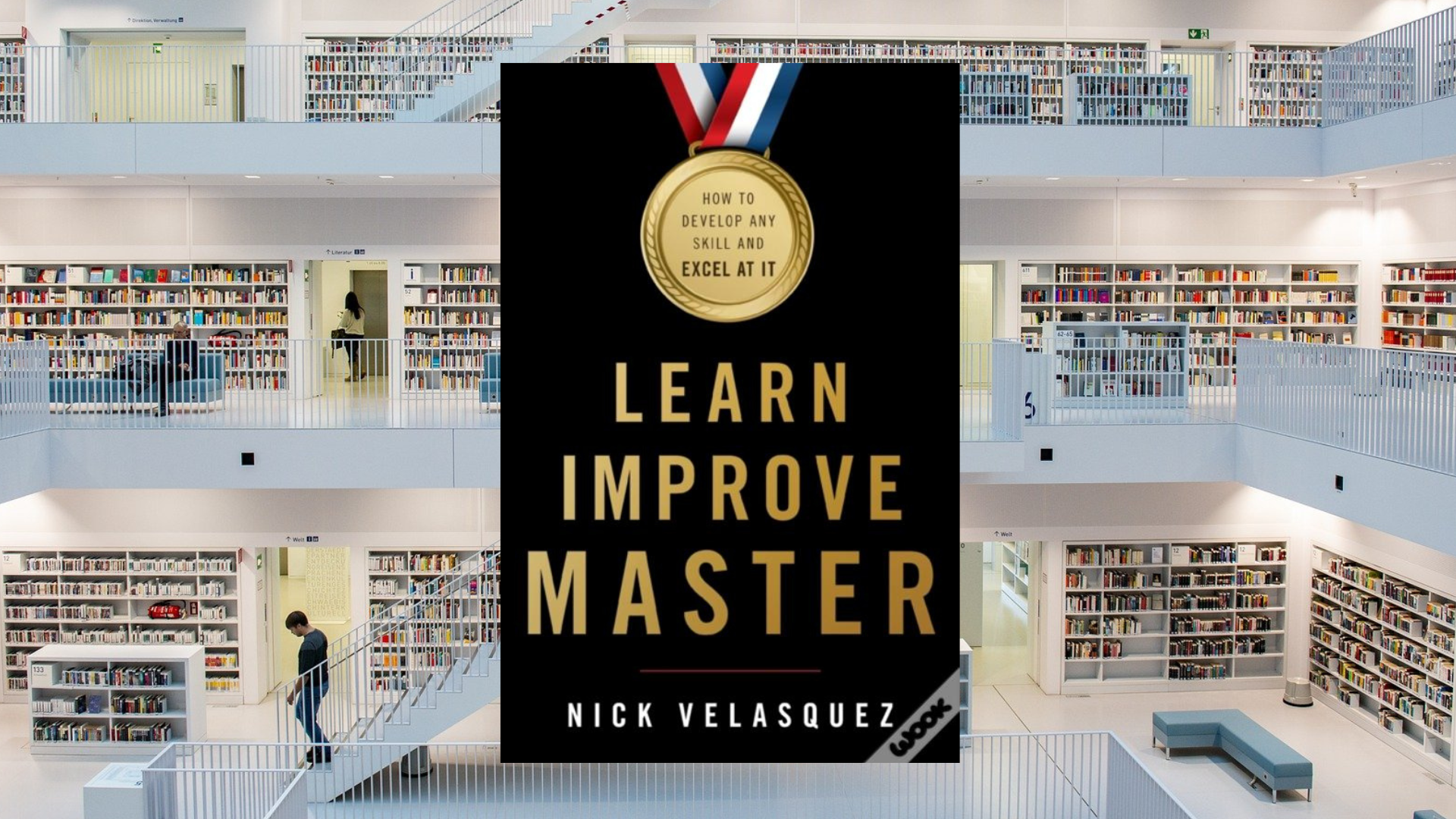
Learn, Improve, Master, by Nick Velasquez:
The athletic, artistic, and intellectual achievements of the great masters have always seemed so...magical. So...unattainable. Beyond anything we could ever hope to replicate. Until now.
In Learn, Improve, Master, Nick Velasquez pulls back the curtain on skill acquisition and mastery and shows that high proficiency and expertise isn't something reserved for a chosen few, but something that's attainable for all of us.
Attainable, that is, if we follow the proven principles of practice and learning as laid out in this book. Attainable does not, of course, mean easy. In choosing to become more than "just okay" at something, we are choosing to commit to a level of discipline and focus uncommon in the eyes of many.
If you've ever seen someone excel at the highest level of athletics; if you've ever seen someone perfectly execute a spectacular dance move, put together a phenomenal meal, or spellbound an audience with a stirring speech and wanted to do that too, this book will work with you to make that a reality.
In the book, you'll learn how to:
- Use your memory like top memory champions and remember anything you want
- Optimize practice like elite musicians, chess players, and athletes
- Build training habits that stick
- Overcome obstacles, setbacks, and plateaus
- Choose mentors and coaches that will help you develop your potential
- Accelerate learning and become a master of your craft
Keep this book by your side as you attempt to learn any new skill or craft and you'll be able to progress so much further and faster than you'd ever be able to on your own. That's partly because what other people have done, you can learn to do.
You can also shorten your learning curve by reading about the mistakes others have made and what they've figured out on their own, without having to go through this painful process all by yourself.
Now, bear in mind, mastery is still going to be a painful process that you'll have to go through. Nobody gets to skip that on their way to greatness.
But by learning the foundational concepts that we're going to cover in this breakdown, and by absorbing the wisdom of people like Leonardo da Vinci, Usain Bolt, Ernest Hemingway, Michael Jordan, Garry Kasparov, Simone Biles, Stephen King, Michael Phelps, Martha Graham, Tiger Woods, Jiro Ono, Serena Williams, and many more, you're going to put yourself in a much better position to win. Simply put, you'll be stacking the probabilities of success in your favor.
The endlessly fascinating part of all this, though, is that you can never, ever know where you'll end up unless you set out on the path in the first place. As Friedrich Nietzsche said:
“There exists in the world a single path along which no one can go except you: whither does it lead? Do not ask, go along it."
Sample Quotes from the Book:
“The principles we've covered - neuroplasticity, specialization, association, chunking, and automation - are the foundation of all learning.
Our brain rewires itself through practice, creating clusters of neural connections composed of associations between thoughts, feelings, and behaviors that specialize in what we repeatedly do. When reinforced, these connections move from our conscious awareness to our subconscious, becoming almost automatic.
Then, our conscious mind is free again to process new tasks and add complexity to our growing abilities. Whether we go into French cooking, sculpting, or golf, these are the processes taking place behind the scenes as we learn. And they change the way we think as much as they change the physical structures of our brain."
“Our focus must be on the fundamentals of our craft: the moves, knowledge, and techniques that are most frequently used and that make the strongest impact. These parts form the base for everything else and are essential for mastering the skill."
"Meta-learning (learning how to learn) should be the skill that precedes all others. Knowing the principles and strategies of effective learning will maximize the time and energy we put into anything else, as well as optimize our work in improving and mastering our chosen craft."
Read the Full Breakdown: Learn, Improve, Master, by Nick Velasquez
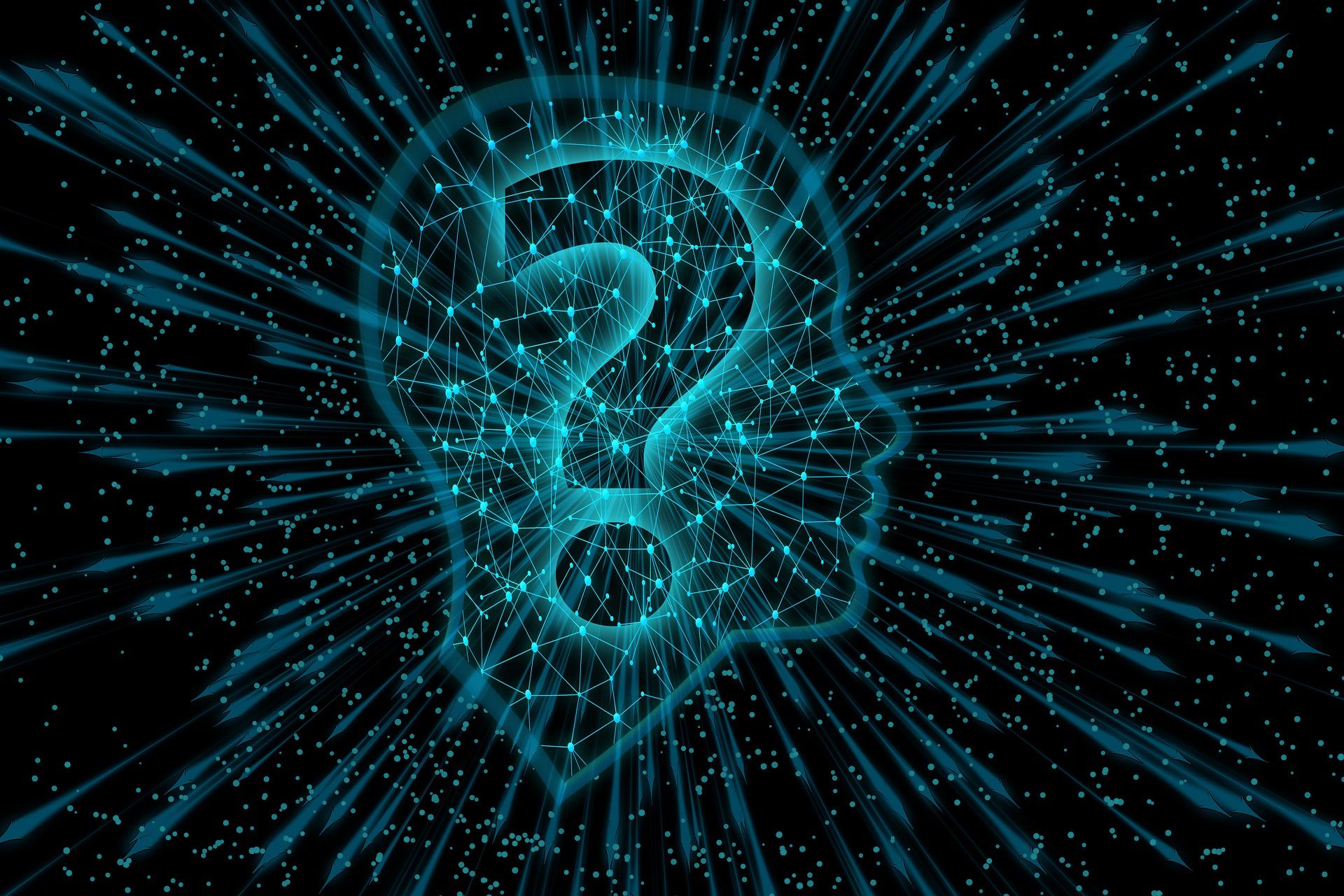
Questions to Stimulate Your Thinking:
The quality of your questions determines the quality of your life. That's also how you get the absolute most out of any book that you decide to read:
You ask great questions the whole time - as though the book was on trial for its life.
Here in this section are a few questions that can help guide and stimulate your thinking, but try to come up with your own additional questions, especially if you decide to read this book the whole way through...
#1: "What was the first book that you remember making a huge impact on you?"
#2: "What was your intention for reading the last book that you finished? If you didn't set an intention, do you remember whether or not the book made any difference to your life?"
#3: "How teachable are you? Are you willing to cede control to a coach, teacher, or mentor, and trust that they know more about the road ahead than you do? Are you willing to follow their instructions to the letter, and to dive headlong into the work they demand from you?"
#4: "Do you have - or are you part of - a great support network full of people headed in the same direction as you are? If not, where can you find these people?"
#5: "Where in your calendar can you find just 15 minutes to read today? Can you block out that amount of time every day for the next week? The next month?"
"Judge a man by his questions, rather than by his answers."
-Voltaire
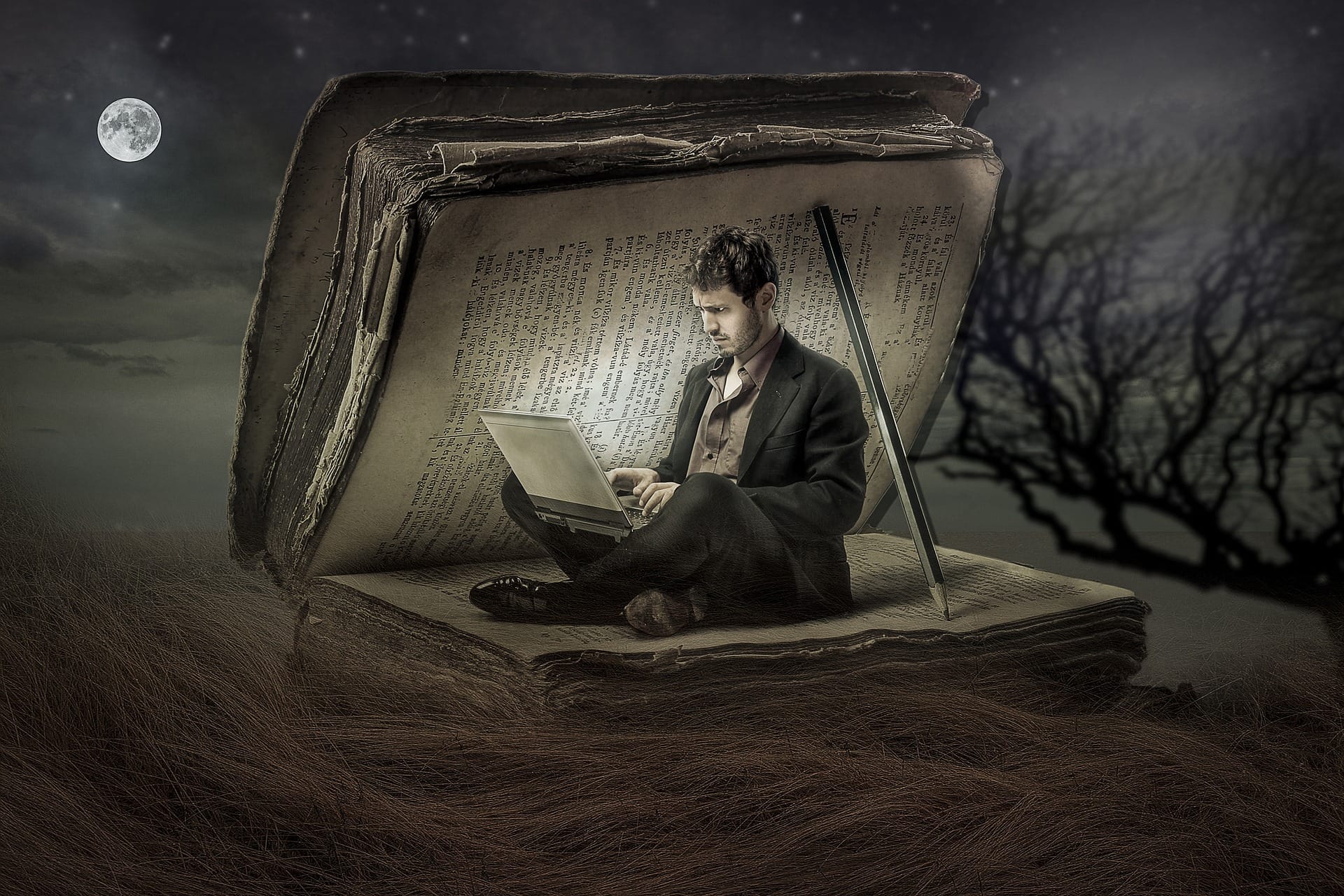
Action Steps:
So you've finished reading. What do you do now?
Reading for pleasure is great, and I wholeheartedly support it. However, I am intensely practical when I'm reading for a particular purpose. I want a result. I want to take what I've learned and apply it to my one and only life to make it better!
Because that's really what the Great Books all say. They all say: "You must change your life!" So here, below, are some suggestions for how you can apply the wisdom found in this breakdown to improve your actual life.
Please commit to taking massive action on this immediately! Acting on what you've learned here today will also help you solidify it in your long-term memory. So there's a double benefit! Let's begin...
#1: Read What You Love Until You Love to Read
It's exceptionally difficult to make yourself do something that you really don't want to do. Maybe that's obvious, but it goes double for reading, something "boringly educational" that most people were forced to do by teachers and adults who sucked all the fun out of it.
So, one of the very first things you need to do to become a Rising Reader is to strengthen (or create from scratch) your positive associations with books and reading. Learn to love it, or remember that you used to love it, but the idea is the same: read what you love until you love to read.
It's helpful to remember here that reading isn't a "competition," there's no "Required Reading List" when you become an adult - it's completely up to you.
You can just read the stuff that you enjoy reading. And once you do, and you start to remember how much you actually enjoy it, then reading is going to become much more enjoyable for you, and less of a chore, and so you'll end up doing it more often. Virtuous cycle!
Just pick up a book that looks good, on a subject you find interesting, or by an author you like, and start reading to experience the sheer pleasure of it. You don't have to finish the book, just enjoy it. And if that particular book isn't connecting with you, simply put it down and start another one.
Take all the pressure off of yourself to "optimize" your reading routine, or stay up to date with all the latest "must read" books, and get back to your true love of reading. Being a reader is what's important, not necessarily what you choose to read. Follow your natural curiosity and your joy.
#2: How Rising Readers Choose What to Read
Once you've strengthened the positive associations you have with reading, you can branch out and become a little more intentional about what you choose to read, if you'd like.
For me, I've found that the best book to read is usually the one that solves my current problem. So if I'm looking for a new workout plan, I'll read a fitness book. If I need more leads in my business, or I'm planning on launching a new product or service, I'll read a book about that.
There's literally a book for every single problem, challenge, or opportunity you could ever encounter in this life.
Next, you could look at what kind of goals you have, and see if there's a book out there written by someone who's achieved something similar (Spoiler Alert: there is!), or you could just read a book written by somebody that you admire. The possibilities are endless.
There are plenty of fantastic sites where people go for book recommendations too. Seriously, you won't have to go far! And I mean, you could start to look at the "Best Book" lists, or "Top 20 Books for Entrepreneurs," or whatever. Nothing wrong with those at all! Just don't start believing that you have to read every book on that list. Many of the people who make up such lists are no smarter than you are.
I'll mention quickly as well that your next book recommendation will often come from the book you're reading now! I literally couldn't even count the number of times an author I was reading has referenced another book that seemed interesting (or dozens!) that I then bought, loved, and found my next favorite book in that book. Reading is a giant rabbit hole that nobody has ever been to the bottom of, and that's never going to change.
#3: Know What to Do and Do What You Know
One of the best decisions I've ever made was to start taking notes on every book that I read, something that I've been doing since 2014. Today, I have thousands of pages of notes from the 1,000+ books that I've read, and they've served me incredibly well. I highly recommend that you do something similar.
For one thing, taking notes will help you solidify your learning, especially if you put the key ideas and concepts into your own words so that they have more relevance to you. Direct quotes are fine - anything that I never, ever want to forget makes it into my notes - but the very act of reformulating what you've been learning into a way that you intuitively understand will work wonders.
Nick Hutchison divides his notes into action items, general notes, quotes, more research required, further reading, and miscellaneous, and I think that's a wonderful idea! I don't do this personally, but it seems to be working for him!
What I do is back up all my notes Google Drive, so that, for one thing, I never lose them, but also so that I can search my notes and find exactly what I'm looking for within minutes (or seconds), instead of running from notebook to notebook, scrambling to find whatever it is I wrote down.
All that being said, your notes exist to help you remember what you read, and in the case of many nonfiction books, to make your actual life better, so you're going to have to review your notes and come up with a system for implementing what you've learned.
What I've found most helpful is to track important habits and behaviors, and then analyze them at the end of the week or month and determine whether or not they're taking me closer to the meaningful goals that I've set for myself.
What gets measured gets managed, and so you need to have some sort of system to be able to tell whether what you're doing is actually working. And if it's not, having your system and activities written down will allow you to clearly see what you're doing well and what needs to change.
Your system doesn't have to be perfect. After all, the slightly imperfect system that you actually use is always going to work better than the absolutely perfect system that you never use. So do the best you can (while realizing that your "best" is likely far greater than you could ever know), and commit to consistent, never-ending improvement over a long period of time.
Lastly, celebrate your wins! I don't do this nearly enough. I achieve so much, and then the internal dialogue is just like, "Of course I did it. It was expected." I don't give myself enough credit for the work I put in and the wins I've racked up, and so I'm suggesting that you, uh...not do that. Celebrate every victory!
Every time you conquer laziness, apathy, fear, and uncertainty represents forward momentum, and you deserve to be recognized for making the effort. Celebrate your wins. That's what Rising Readers do.
"The path to success is to take massive, determined action."
-Tony Robbins


About the Author:
Nick Hutchison stands as the visionary force behind BookThinkers, a growing 7-figure marketing agency that seamlessly bridges the worlds of authors and readers.
In just over 7 years, he has organically built a platform that reaches over 1,000,000 people each month. Nick’s podcast, BookThinkers: Life-Changing Books, is a global top 2% show that features captivating interviews with world-class authors such as Grant Cardone, Lewis Howes, and Alex Hormozi.
Through the use of his platform, Nick has helped hundreds of authors expand their reach to hundreds of millions of readers and drive significant revenue growth as part of their book campaigns. His services include short-form video production, podcast booking and social media book reviews.
Now, Nick has dedicated his life to helping millions of readers take action on the information they learn and rise to their potential through his books, speaking, and personal brand as a whole. This was the inspiration for his new book, Rise of the Reader, where he dives into the strategies for mastering your reading habits and applying what you learn.
Additional Resources:
BookThinkers | Book Recommendations
BookThinkers | Podcast Interviews
This Book on Amazon:
Rise of the Reader, by Nick Hutchison
If You Liked This Book:
Learn, Improve, Master, by Nick Velasquez
Make It Stick, by Peter C. Brown, Henry L. Roediger III, and Mark A. McDaniel
Do Hard Things, by Steve Magness
Discipline is Destiny, by Ryan Holiday
Discipline Equals Freedom, by Jocko Willink
Finite and Infinite Games, by James P. Carse
Doing the Impossible, by Patrick Bet-David
The Pleasures of Reading in an Age of Distraction, by Alan Jacobs
